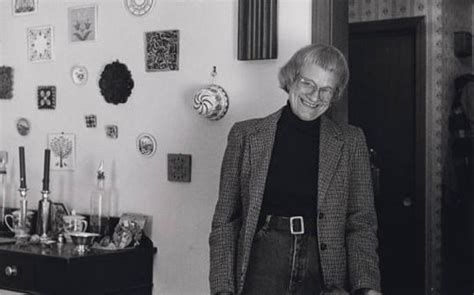A Quote by Walter Benjamin
Having a clear faith, based on the creed of the church is often labeled today as fundamentalism. Whereas relativism, which is letting oneself be tossed and Of all the ways of acquiring books, writing them oneself is regarded as the most praiseworthy method. Writers are really people who write books not because they are poor, but because they are dissatisfied with the books which they could buy but do not like.
Related Quotes
A dictatorship of relativism is being built that recognizes nothing as definite, and which leaves as the ultimate measure only one's ego and desires ... Having a clear faith, according to the credo of the church, is often labeled as fundamentalism. Yet relativism, that is, letting oneself being carried 'here and there by any wind of doctrine,' appears as the sole attitude good enough for modern times.
Solid scriptural theology should be valued in the church. Books in which Scripture is reverently regarded as the only rule of faith and practice-- books in which Christ and the Holy Ghost have their rightful office-- books in which justification, and sanctification, and regeneration, and faith, and grace, and holiness are clearly, distinctly, and accurately delineated and exhibited, these are the only books which do real good. Few things need reviving more than a taste for such books as these among readers.
Because by now Elinor had understood this, too: A longing for books was nothing compared with what you could feel for human beings. The books told you about that feeling. The books spoke of love, and it was wonderful to listen to them, but they were no substitute for love itself. They couldn't kiss her like Meggie, they couldn't hug her like Resa, they couldn't laugh like Mortimer. Poor books, poor Elinor.
There are a lot of people out there who will write books, in which everything turns out nicely and the bad guys lose, the good guys win, the boy gets the girl and they live happily ever after. There's a million books like that and if that's the comfort you're looking for, you should read those books and not my books because that's not the kind of book that I am interested in.
I write for young people because I like them and because I think they are important. Children's books can be mind-stretchers and imagination-ticklers and builders of good taste in a way that adult books cannot, because young people usually come to books with more open minds. It's exciting to be able to contribute to that in a small way.
Few people today realize just how much faith in oneself (that part of oneself which is spiritual, perfect) has to do with achievement, because the great majority of people never seem to conceive of faith as being a genuine creative force. Yet the truth is that not only is Faith a bona fide power, but it is the greatest one we will ever encounter.
I don't believe that fiction is dead. I know there are some people who believe that it's an outdated art form, and that to express truth today you need to work in different forms, to write books where it's perhaps not clear what's fiction and what's memoir. I have nothing against those books and love many of them very much. But we have enough space for everyone, traditional realists and hybrid writers, and experimental writers all.






























